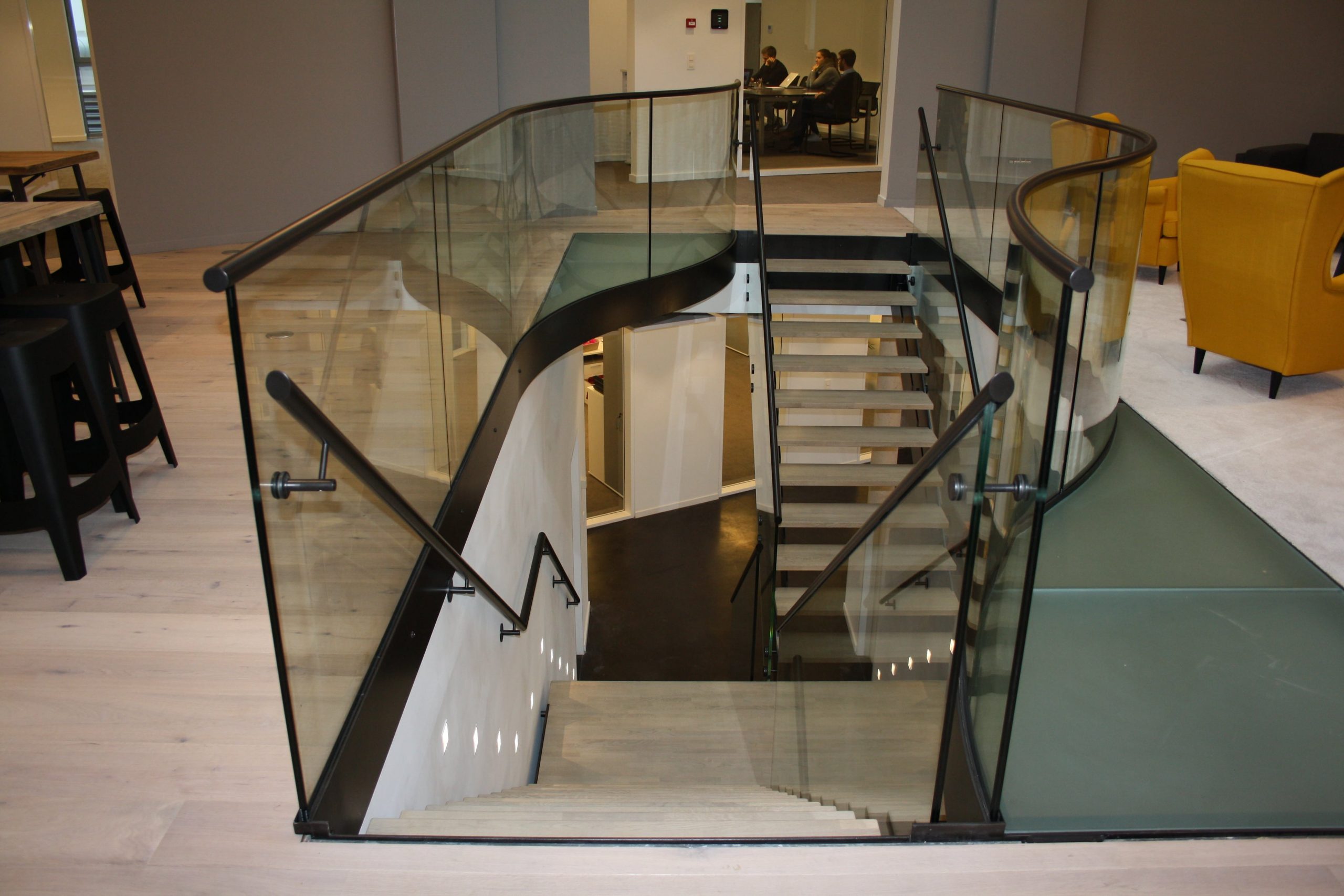This year has changed how all types of businesses are able to function. We look forward to 2021 and how we anticipate commercial properties will continue to adapt and what offices, hospitality and retail spaces will look like in 2021 and beyond:
Office space
Recent research revealed that 72% of office workers from 10 countries around the world want to keep working at home post-COVID-19, mostly for around two days a week1. With this in mind, plus workers changing expectations in socially distanced working, traditional office spaces are set for big changes in the future. The main trends we anticipate to see in these types of properties include:
- Quiet Working Areas – Something which many people struggle to have whilst working from home. These could include partitioned off solo working spaces, perhaps separated by glass screens, with access to natural light and windows to allow for ventilation. These areas should also be made soundproof so workers can comfortably take audio and video calls.
- Hotwalls – With the increase in home working alongside physical offices, businesses will need to ensure colleagues who aren’t regularly in the office can easily communicate with those on-site. We predict in communal areas of office space we will see ‘Hotwalls’ which will be a large screen connected to an always-on camera which easily connects to those working from home. These will be used for more social calls rather than business meetings.
- Open Plan Spaces – Social distancing is set to continue into 2021 and many Brits have become accustomed to this extra space, so designers will need to make sure this is considered when developing office spaces in the future. Open-plan offices will become increasingly popular as they allow more room for socially distanced desks and commuting around the space itself. Within these open spaces, creating an area where people can come together for collaborative working will be essential, so large meeting tables with connectivity and plug-in stations will be key.
- Open Breakout Areas – We anticipate that traditional stuffy enclosed meeting rooms will give way to more open breakout areas that can provide space for meetings of all sizes. Temporary partitions will become more popular as a way to create individual spaces as and when they are required, rather than permanently breaking up the space. Access to windows for ventilation will also be key when creating these temporary meeting areas.
- Sustainable Design – Similar to home design trends we expect to see in 2021 and beyond, this will carry over into office spaces as employees push for businesses to improve their eco-friendly ways of working. Creating an eco-friendly designed office is the first step and is a great way to showcase commitment to looking after the planet. Sustainable designs will incorporate reclaimed wood and sustainable materials, as well as aim to reduce energy consumption and improve existing waste management systems.
- Recreational Space – After spending so much of their time at home in 2020, when employees return to the office they will come to expect spaces which allow them to engage in more recreational activities during their lunch breaks. Businesses should look at how they can incorporate these into their existing spaces with the introduction of more relaxed and comfortable seating areas, potentially games consoles, books, pool tables etc. as a way of reducing stress levels and encouraging creative thinking within their workforce.
Hospitality
The hospitality sector has taken a real hit in 2020, constantly adapting to ongoing restrictions in order to welcome customers safely. Whilst many of the existing restrictions will likely continue into the new year, we expect to see the following trends in hospitality properties in 2021:
- Outdoor Dining – We’ve seen many restaurants and bars improving their outdoor spaces this year and this will continue next year. From outdoor heating to weatherproof roofing, businesses will need to review how their existing facilities can be adapted. Using windscreens and temporary roofing will be essential during the colder months.
-
- Walk-Up Windows – Getting takeaways from local pubs and restaurants has become increasingly popular and this trend is something that could be here to stay. Whilst many businesses have already created efficiencies to allow for safe takeaways for customers, walk up pick up windows are likely to be a common feature at hospitality properties moving forward. These are ideal for more city-centre locations which cannot create a drive-thru. Businesses can add a pick up window by repurposing an existing window or even swapping an exterior door for a dutch door. If you already have glass sliding walls, these can also be used to create a walk-up window without having to make any substantial changes to the property.
- Dining Pods – Colder weather will bring its own array of problems for outdoor dining, so we anticipate many properties will bring in outdoor dining pods which are a fantastic way to continue offering customers an enjoyable dining experience all year round. These pods can be created using either plastic igloo tents or plexiglass sheds and will need to be well ventilated and easily accessible for regular cleaning.
- Independent Check-In and Self Service – Reducing facetime with customers is becoming increasingly popular in hotels and we expect to see this continue into 2021 and beyond. Using self-check-in stations which are regularly cleaned and simple to use will be key. These self-service stations should be socially distanced from each other whilst still being close enough to physical staff so customers can still communicate with an employee if needed. Glass partitions and one way systems are expected to be part of this process too.
- Minimalist Designs – Whilst many people like to head to hotels for a touch of luxury, these properties will likely opt for more minimalistic designs in the future to allow for regular cleaning, meaning fewer items need to be disinfected. Items such as complimentary pens, magazines, bed runners and decorative pillows could be missing from your next hotel stay. Lobby areas will be adapted to allow for socially distanced ways of working from solo seating areas to temporary partitions are expected to be common features.
Retail
Alongside hospitality properties, retail spaces have had to adapt to ongoing guidelines, which have potentially changed how they will function in the future. But retail businesses will also need to adapt to a change in buying habits with an increase in online spending. We predict the following will be key trends within the retail sector moving forward:
- Welcoming Spaces – We’ve already begun to see this trend come through in cafes, hotels and restaurants but creating spaces which feel more like real living spaces will become increasingly popular in retail properties. Incorporating more seating for customers to get comfortable and indulge in the shopping experience more than a cold hard exterior of racks of clothing will be preferred. More vibrant colours and interactive aspects such as advertising screens incorporated into the room structure showcasing models in clothing are also likely to become more popular.
- Experiences Over Sales – Shopping habits have likely changed for many Brits with the stay at home messaging in 2020, which means the physical shops may no longer be the final destination in the purchase journey. Instead, the physical space is somewhere customers will come to test out products and then make their purchase decision online. Some brands such as Canada Goose have taken this a step further already and created demo environments for customers to really try before they buy.
- Changing Rooms – Whilst many shops haven’t been able to offer customers the opportunity to try on clothing before they make a purchase in 2020, once restrictions do eventually ease, we expect the existing changing room space to have adapted. Existing cubicles will need to be made much larger with walking space between each pod widened and one way systems to be imposed. Regular cleaning will also be common with new technology installed to allow direct lines of communication to members of staff for further assistance without having to leave your designated area.
- Virtual Assistants – If you shop online, you’ll have seen that many businesses have introduced chatbots and virtual assistants to help with queries. As we head back to the high street in 2021, we might begin to see these virtual assistants present in physical stores. Recent products such as Pepper the retail assistant could be something customers become familiar with, as the technology will allow them to receive special offers instantly in-store and log direct feedback on their in-store experience.
If you’re looking to make changes to your existing office, retail or hospitality space in 2021, contact our friendly, expert team today to see how we can assist.
Source: https://www.us.jll.com/en/trends-and-insights/research/global-workforce-expectations-shifting-due-to-covid-19



